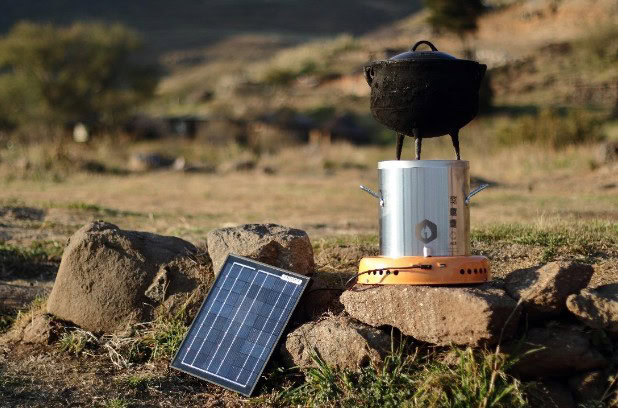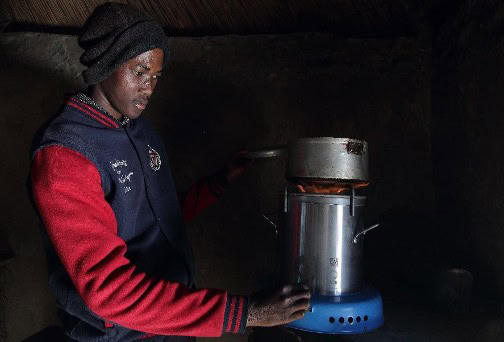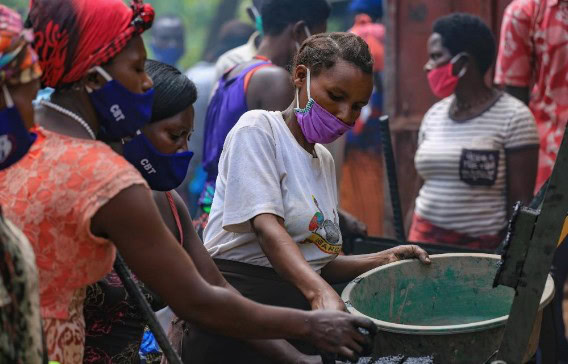Given the scarcity of natural resources in Kyangwali, there is a huge demand for an affordable and accessible fuel alternative for refugee and host populations. Most refugee and host community households in Kyangwali cook on inefficient cookstoves due to a lack of alternatives. This problem of poor energy access is one that disproportionately impacts women and children as they tend to spend the most time exposed to indoor air pollutants and the burden of gathering fuel also falls on them. In Kyangwali, children alone spend 2 hours/day collecting fuel. Female refugees are often exposed to gender-based violence (GBV) on these paths to collect fuel. Through trainings on gender and community dialogues, CARE ensures that the challenges faced by women around this issue are identified and addressed.
Two complementary programmes are being developed with an integrated gender approach.Firstly, the User Referral Bonus Model. African Clean Energy makes their improved cookstove and clean energy system, the ACE One, affordable to refugees in Kyangwali by selling it on a User Referral Bonus (URB) model whereby participating refugee and host community members are able to reduce the monthly instalments on which they purchase the product by recommending it to a friend. Secondly, Briquetting Business. Under this programme, the Kabarole Research Centre passes their knowledge of clean, biomass briquette production on to local farming cooperatives/Village Savings and Loan Association (VSLAs) to empower them to set up their own briquetting businesses. Each business will have the tools to produce affordable briquettes for sale amongst the target population.
Update: After the first batch of 300 stoves had arrived in Kyangwali, the recruitment of sales agents from the refugee and host communities has started and the sales process can begin. Community dialogues on improving energy access took place. The community-based trainers for the briquette production are currently being trained and the market study is about to start. Group demos within Kyangwali on the importance of clean cooking technology and how the URB model works are taking place and trainings on briquette making and marketing among qualifying groups are being prepared.



Save the Children
Laan van Nieuw Oost-Indië 131-k
2593 BM Den Haag
The Netherlands
Chair organisation: ZOA
E: office@dutchrelief.org